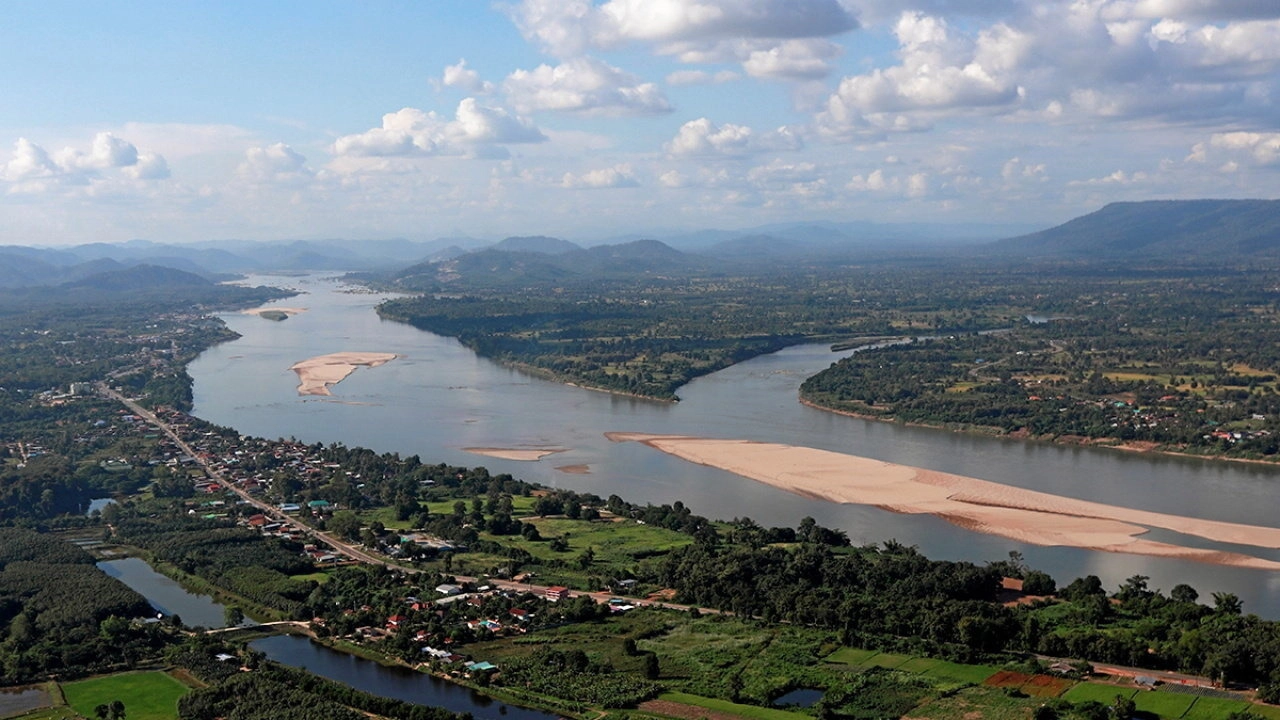
Create happiness Reduce inequality Creative ASEAN Community The heart of the Lancang-Mekong country group, taking the “Mekong River”, an important river in the Indochina Peninsula, as the river that binds the relationship as one brother among the 6 Mekong River countries. Consisting of Myanmar, Laos, Thailand, Cambodia, Vietnam and the People’s Republic of China, relations linked by the Mekong River create cooperation in 6 important areas, consisting of: 1. Connectivity 2. Production potential 3. Cross-border economy 4. Water resources 5.Agriculture and 6. Poverty eradication All to develop the economy and quality of life of people in the Mekong Basin countries for the better. Cooperation of the Lancang-Mekong countries. Entering its 8th year in 2024, Thailand has an increasingly prominent role as a partner within the cooperation mechanism and this year The Lancang-Mekong Cooperation Special Fund (LMCSF Funded Project) provides funding to projects that are beneficial to improving the quality of life of the people of the Lancang-Mekong region. National Science and Technology Development Agency (NSTDA), Ministry of Higher Education, Science, Research and Innovation (NHS) to 3 projects, Prof. Dr. Chukit Limpichamnong, “NSTDA is one of the central agencies in transferring technology to the Mekong Basin countries to achieve development and benefit people’s livelihoods. To create a good living, 3 projects that NSTDA receives funding include: 1. Project to transfer technology and exchange knowledge about edible mushrooms for sustainable international economic and agricultural development in the Mekong River region. 2. Project to promote sustainable cassava production using technology and innovation in the Mekong River region by the National Center for Genetic Engineering and Biotechnology (Biotech) and 3. Project to increase technological capacity of domestic industry and Prepare draft product standards according to the requirements of the high-speed rail project by the National Metal and Materials Technology Center (MTEC). All 3 projects received a budget of 734,092 USD or approximately 25,830,423 baht for all 3. Projects related to economics and cross-border trade agriculture and poverty alleviation, which play an important role in improving people’s livelihoods Food security and economic and social development in the Mekong Basin countries,” Prof. Dr. Chukit Limpichamnong, Director of NSTDA. Mentioning 3 projects that will be implemented for a period of 3 years, from 2024-2027, Dr. Amphawa Pin on the researcher side of the project Dr. Amphawa Pinruen, project leader and researcher of the agricultural microbial interaction research team Biotech-NSTDA. responsible for the technology transfer project and exchange knowledge about mushrooms, said that the project aims to promote a better life for people in the countries in the Mekong Subregion through mushroom resources, as well as promoting sustainable development in agriculture and economic security. food There will be technology transfer and knowledge exchange regarding wild mushroom resources and cordyceps. (Cordyceps group) that can be used for consumption in each area Searching or developing new economic mushroom strains that can reduce production costs when compared to imported strains. Including opening up marketing opportunities Promote environmentally friendly management and control of the mushroom cultivation process. Doctor Saengsoon Charoenwilaisiri while Doctor Saengsoon Charoenwilaisiri Project leader and researcher of the research team on monoclonal antibody production and biotech applications – NSTDA. who is responsible for the project to promote sustainable cassava production using technology and innovation in the Mekong River region, said the project will solve the problem of disease outbreaks and the lack of clean cuttings. Biotech will develop technology to produce clean, quality cuttings. Makes it possible to produce large quantities of seedlings within a short time. In addition, technology has been developed. Diagnosis method for cassava leaf spot disease For use in disease screening in the production of clean seedlings and for monitoring the spread of disease in planting plots. Importantly, the research team will use technology for producing clean seedlings and diagnosis of cassava leaf spot disease to expand the results for wider use in countries in the Mekong River Basin. Dr. Ekarat Waiyanit, Dr. Ekarat Waiyanit, Director of the Modern Railway and Transportation Technology Research Group MTEC-NSTDA, which is responsible for the project to increase the technological capacity of domestic industries and prepare draft product standards according to the requirements of the high-speed rail project, said the project will help develop personnel in the education sector. Research and development and industrial sectors of the Lancang-Mekong countries for use in the infrastructure of the high-speed rail project, including domestic industries that still lack the opportunity to participate in the high-speed rail project supply chain. It starts with upgrading the technological capabilities of the industrial sector in the country where the construction of the high-speed rail project is underway. There is also an activity to prepare draft standards for industrial products produced in the country before submitting them to the national standards agency for reference in announcing industrial product standards certification for use in high-speed rail projects in Thailand. and will expand the results by transferring knowledge to neighboring countries that will have high-speed rail construction projects in the future. The “Science News Team” sees these three projects as regional cooperation mechanisms. With the goal of creating a community with a shared future in developing towards a better quality of life for the people because of the development of new production capacity from technological advancements and innovations. It will help promote competitive advantage. To lead the Mekong Basin countries to reach their stated goal, which is to create happiness. Reduce inequality Creating an ASEAN community. Science news team reads All “Thairath newspaper columns” here






